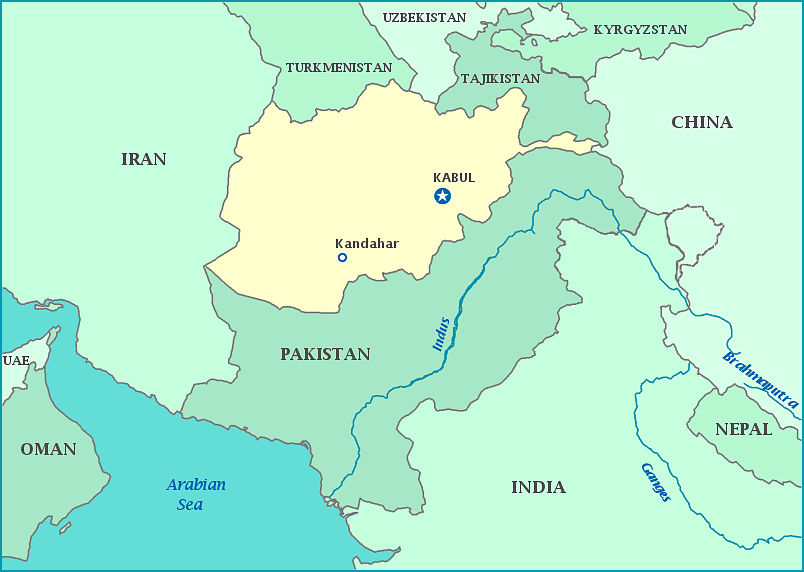How
unbelievably stupid can you get?
A group of
US soldiers in Afghanistan
 Let me just
see if I’ve got this straight. The
Let me just
see if I’ve got this straight. The
The Afghans
don’t like any foreigners telling
them what to do, and a large part of their obscure, complex tribal culture has
to do with their young men learning to use guns and any other weapons available
before they would be ready to shave (if, that is, they shaved, which they
generally don’t). The longer the US
At any
rate, we have moved from a situation where, a decade ago, most Afghans were
delighted to see the backs of the Taliban, to a situation where they are now
back in a powerful position and gaining ever more support from many Afghans,
who see them increasingly as potential liberators from foreign oppressors. What
a wonderful example of winning the war only to lose the peace.
Ok, so Afghanistan US US leadership seems to have forgotten one of the
major lessons of Vietnam US Iraq
But even
getting out officially isn’t easy. I believe that the US and its allies don’t
really give a tinker’s curse about Afghanistan; as far as they are concerned,
if the Afghans are intent on living in a barbaric medieval theocracy, where women
are treated as chattels, those who don’t share the faith of the rulers live in
fear of death, and there’re more or less continual low-level wars between
various tribes, then they’re welcome to do so. Admittedly, there is the poppy
problem – Afghanistan is the world’s largest producer of non-pharmaceutical
grade opiates (92% in 2007) and also, incidentally, the world’s largest
producer of hashish – but, despite all the hype about the so-called War on Drugs, I have a feeling that (for
all sorts of reasons, many sordid, which I won’t go into here) the US and most
other countries can live with that. No, the real problems are the two 500 pound
gorillas next door, Iran to
the west and, especially, Pakistan
In the
ordinary course of events, Iran US Iran Israel
and Iran US
The blatant
ignorance which gave rise to this Koran-burning incident is simply
mind-boggling. Apart from damaging any claim to some kind of moral high ground which
the US might like to appeal to in this whole situation – a claim which actually
had some justification in the immediate aftermath of 9/11 but which has been steadily
losing credibility ever since – it is abysmally stupid from a practical
strategic point of view. If the US
It makes me
wonder about the mind-set prevalent within the US Armed Forces, when any
trained soldiers would not be aware of the consequences of such an action. No
matter what strength of suspicion about the level of involvement of the
detainees with the Taliban, the burning of Korans is a gratuitous act of insane
provocation which can only suggest that those responsible are seriously
dehumanised. They are not the actions of troops who are fighting to defend the
ideals of the American republic throughout the world, but rather of arrogant,
imperial occupiers, who could best be compared to the Roman legionaries who
played dice at the foot of the cross of Jesus of Nazareth, whom most of them
regard as their Saviour and God.
NATO has apologised,
Obama has apologised, but it’s not doing all that much good. Perhaps because
the incident is not an isolated one. Only a few days earlier, pictures were
released of US Afghanistan Florida
One of the
frightening aspects of all this is that it doesn’t even seem to be creating
much of a stir in the US, more occupied as it is with Whitney Houston, the Oscars
and the ghastly, unreal comedy of the Republican presidential nomination
campaign. It would offer some kind of hope if there were any real signals of
some sort of public feelings of shame at the actions of its soldiers. But why
should the Roman public be concerned about the doings of its legionaries in a
remote country, mostly populated by religious fanatics; Pharisees, Sadducees
and Zealots – or raghead Salafists, Shi’ites and Talibans? Particularly when
there are more interesting bread and circus issues at home.








